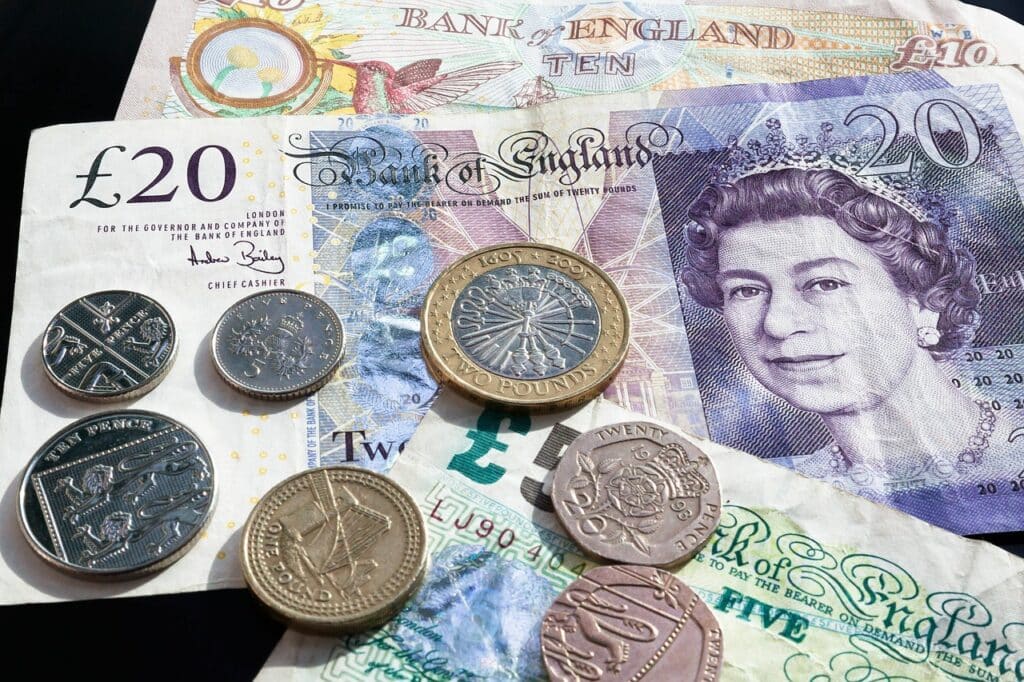How To Sell Your Business In The UK
If you are looking to invest as an expat or high-net-worth individual, which is what I specialize in, you can email me (advice@adamfayed.com) or use WhatsApp (+44-7393-450-837).
Table of Contents
Introduction
There are several reasons why you might desire to sell your business in the UK, including retirement, financial gain, no longer wanting to operate the firm, and simple disinterest.
In the event that you already have any company partners, you can sell your shares to them or to a third-party bidder. You can also consider giving a member of your family the shares you now own.
You will need to collaborate with any business partners you may have to do this. You should review the articles of organization and any shareholders’ agreements before changing ownership since they frequently contain clauses allowing for the purchase and sale of business shares.
When preparing to sell your business in the UK, you must take into account your stock, your assets, your obligations, taxes, professional assistance, and your buyer.
If you’re wondering how to sell your business in the UK, you should also think about how you’ll make the firm ready for sale.
When is the Best Time to Sell Your Business in the UK?
Retirement and poor health are two common reasons for selling a firm, but switching to a new endeavor may also be on your agenda. Unfortunately, if health problems are a problem, you might not have a choice, but if you can timing the sale effectively, it can increase the ultimate value.
Investors aiming to profit from escalating revenues and performance are likely to show a lot of interest in a firm sale during a growth period, for instance. However, other factors could also have an impact on the time.
For instance:
- New competitors may be disrupting the market, making you believe the threat to your firm is too large.
- You may be considering a new enterprise; perhaps you’ve been in company for a while and believe you’ve met your primary goals, and you’re searching for a new challenge.
- Perhaps a decline in earnings has prompted your choice to sell—if the market has dropped in general, perhaps you need to sell the firm before profits fall much more.
- Is a trade sale or pre-pack right for me?
- Whether your personal circumstances or the financial status of your firm are pushing you to sell, meticulous planning and preparation are critical to reaching the best end value.
So, how do you sell your business in the UK?

12 Steps to Sell Your Business in the UK
1. Determine your goals and expectations.
Why are you looking to sell your business in the UK? You could be ready to retire or you might wish to free up funds to start a new business.
Maybe you’ve had partnership disagreements and want to move on, or maybe your revenues are diminishing and you’re frightened of losing more money.
Whatever your motivation, keep your final objective in mind at all times. Whether you have a certain number in mind or a date in mind, these goals will help concentrate the approach.
You can expect the transaction to take at least six to nine months, so getting ready early will be critical to meeting your objectives.
2. Ready the company for sale.
Making a firm as appealing as possible to attract a buyer is an important aspect of selling it. Similar to staging a home for sale, you want it to appear at its best. You can follow the instructions listed below:
- Form a good team and organizational structure that would be enticing to buyers
- Clean up the area and repair or replace any damaged equipment.
- Resolve any disagreements you may have with customers, staff, or suppliers.
- Sort through all of your leases and contracts.
- Cut back on personal costs
- Prepare current accounts in order to sell at or shortly after year-end.
- Gradually delegate owner responsibility to the management group
- Consult with tax, legal, and accounting advisors to learn about potential deal arrangements.
3. Look into the tax you’ll have to pay.
If you sell your business in the UK for a profit, you’ll have to pay capital gains tax on any excess above your tax-free limit. However, there are a few tax reliefs that might reduce the cost:
Business asset disposal relief
If you’ve been a single proprietor or business partner for two years and have owned the company, you may be able to pay capital gains tax at a reduced rate of 10%.
Business asset rollover relief
If you’re utilizing the proceeds from the sale of certain assets to purchase new ones within three years, you can postpone paying capital gains tax.
Incorporation relief
Defer paying capital gains tax by transferring your firm and its assets in exchange for shares when you sell it to a corporation.
Gift hold-over relief
You can provide the buyer of a company asset you’re selling the obligation to pay the capital gains tax.
You should also take into account the VAT that your business pays. When negotiating the purchase, keep in mind that if you are registered for VAT, you may often transfer your registration number to the new owner.
If you are self-employed, you must notify HMRC as soon as your business is shut down. Use an online form to accomplish this. The day you quit trading must be included in a self-assessment tax return that you must then file.
4. Determine the best time to sell your business in the UK.
You may have had a target date in mind for the company sale, but you should carefully consider the timing that would result in the best offer and the easiest transaction. In order to attract buyers, it is typically a good idea to sell your business in the UK when profits are high.
Additionally, when economic markets are booming and there is a greater need for transactions, you might want to consider selling your firm.
Spend a lot of time planning your sale. To give yourself the best opportunity of putting your accounts in order, developing a solid team, and growing your client base—all of which will help you obtain a better price—you should try to start preparing your firm for sale two years in advance.

5. Get a company valuation.
A company valuation is comparable to a home value if you choose to think about it that way. It’s your company’s asking price, which is determined by a number of factors, including your company’s physical assets, expected profitability, brand reputation, and the competitive landscape.
There are several approaches you may take to determine the worth of your company, but it might be helpful to get the expertise of an expert who can provide a thorough analysis and educated estimation.
Furthermore, that may not ultimately be the price it sells for, much like when valuing a home. Be ready for a lot of negotiating and be prepared to back up your estimate with loads of proof.
6. Make a sales brochure.
Businesses that are for sale have information summarizing their selling qualities, much like properties on the market do.
Start with a one-page summary that is one sentence long and focuses on the key topics, such as the work you perform, where you are located, your USPs, the reasons people buy from you, your turnover, and your potential for development.
Then compile additional specific information regarding your business’s activities, facilities, leases, machinery, and other assets.
You might have to write an operational guide before a purchase closes to aid the buyers in taking over.
7. Be ready to perform due diligence.
Any buyer who is serious about buying your company will conduct extensive due diligence to guarantee they are receiving a decent bargain.
Be prepared for this; any gaps or faults can soon turn them off, so it’s worth hiring a legal professional or an accountant to handle this phase for you. Here are some important factors to consider:
- Intellectual property – ensuring that your trademarks, copyrights, company name, and domain name are correctly protected.
- Contracts – review employee, supplier, and customer contracts to ensure they are all up to date and clear.
- Insurance – make sure you have the proper business insurance in place to cover you until the sale is completed.
- Liabilities – all liabilities should be paid off or disclosed.
- Financial records – collect specific paperwork and tax returns dating back at least three years (or your first year of operation if it is less than three years old).
- Statutory registers – ensure that Companies House and other registers are up to date.
- Properties and assets – be explicit about what is included in the transaction and draft lease paperwork, if one is in place.
- Shareholders – provide clear information about the shareholder status.
8. Find a buyer.
More options than ever exist for you to locate a buyer for your company. You might try one of the websites that list firms for sale or advertise your business for sale in regional or business periodicals.
You might take advantage of social media, which is useful for small businesses. You might be able to approach someone you believe would be interested, such as a customer, supplier, or even rival. As an alternative, you might use a broker.
9. Get a broker.
A broker will serve as a go-between for you and your purchasers. They will assist you in locating buyers and negotiating the best bargain.
Although you must pay for their services (often 1% to 10% of the business’s worth), the higher price you may obtain should exceed the expense. Here are some benefits of hiring a broker:
- Save time – seeking buyers and negotiating transactions may be full-time jobs, and you may not have the time to do them well.
- Market access – if you’re new to selling a business and don’t know where to find buyers, a broker can provide you with a wide selection of possibilities.
- Get a higher price – because brokers are frequently paid on commission, they will work hard to get the best price possible in order to boost their revenue.
- Experienced negotiators – brokers can handle the negotiations for you, including uncomfortable talks that you may not want to have.
10. Negotiate with the buyer.
Most consumers will wish to bargain with you in order to achieve a lower price or better deal conditions. When you receive an offer, the first step is to maintain constant communication in order to prevent losing the transaction before you’ve had a chance to negotiate.
Always keep in mind that negotiations are two-way processes. While keeping a minimal amount in mind, you should allow for a little bit of price reduction in your value. Additionally, it’s crucial to investigate your customer.
Look into their priorities and concentrate on the USPs that could be particularly helpful to them. If your buyer already owns a firm, seek to find synergies between yours and theirs to assist persuade them that your company is the last piece they have been looking for.
Verify that your prospective buyer has the required finances in place to purchase your company; doing so will increase the likelihood that the transaction will go without complications.
One of the most important pieces of advice is to start writing everything down at this point. Send an email to confirm phone conversations so that you have a record of them in case there are any problems later on.
A smart option is to request confidentiality and nondisclosure agreements from prospective purchasers in order to safeguard your company.

11. Execute the business sale.
Normally, your lawyer will guide you through this phase as you study the contracts and seek to set a selling date. The key agreements in question are listed below:
- Purchase and sale agreements – these cover the terms of the sale.
- Lender documentation must be supplied and evaluated if the buyer is borrowing money to finance the transaction.
- Lease agreements – If there is leased property or equipment, the lease must be allocated to the buyer.
- Bill of sale – this document conveys the buyer’s ownership of the company’s assets.
- Non-compete agreement – you may be requested to commit not to establish a new firm in direct rivalry.
12. Responsibilities after a sale.
In order to prevent any interference that may harm the sale, it is advisable to wait until the purchase is finalized before informing your staff. Once all the agreements are in place, tell your staff what will occur, how the sale will affect them, and where to get assistance.
After you sell your business in the UK, you will be responsible for paying any taxes that are owed. To ensure you have enough money to pay your taxes, don’t squander any gains hurriedly.
Remember that selling your business in the UK isn’t the only option to quit it; there are a variety of different exit methods to explore. Discuss with your accountant whether one is most suited to your specific circumstances and aspirations.
Pained by financial indecision? Want to invest with Adam?

Adam is an internationally recognised author on financial matters, with over 760.2 million answer views on Quora.com, a widely sold book on Amazon, and a contributor on Forbes.



